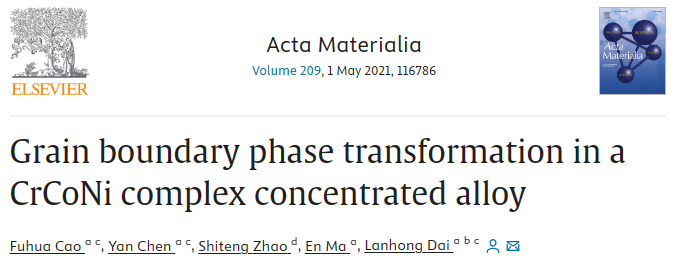
The phase-transformation-like behavior of grain boundaries, where their chemistry, structure and properties change discontinuously, is emerging as a fundamental interest in the context of grain boundary engineering. The cases studied so far pertain primarily to elemental metals and dilute alloy systems. The next step of complexity would be a system still of a single phase structure but involving multiple and concentrated elements. The recently emerging high/medium entropy alloys (H/MEAs), alternatively known as complex concentration alloys (CCAs), fit the bill in this regard. Here we use CoCrNi as a model CCA to highlight that intricate interatomic interactions influence the grain boundary element distribution and consequently phase transitions. By combining classical molecular dynamics simulations and first-principles density functional theory calculations, we reveal that grain boundary phase transition temperature is sensitive to the grain boundary atomic configuration. The CCA grain boundary with random atomic distribution is more apt to transform due to a larger thermodynamic driving force and faster diffusion kinetics, compared to a hypothetical reference that bears the same bulk properties but no distinguishable constituent components. In contrast, when the three elements redistribute with local Ni-clustering and Co–Cr ordering in the grain boundary structure, diffusion is rendered more sluggish, delaying grain boundary phase transformation. Our work is a step forward in understanding critical phenomena in grain boundaries and CCAs, and enriches the knowledge base for materials design via grain boundary engineering.
Link:https://www.sciencedirect.com/science/article/pii/S135964542100166X?via%3Dihub